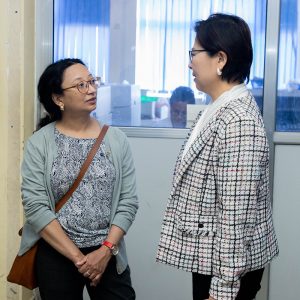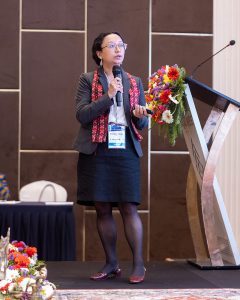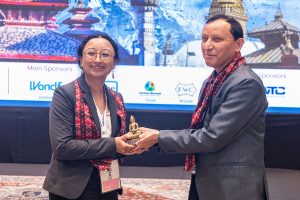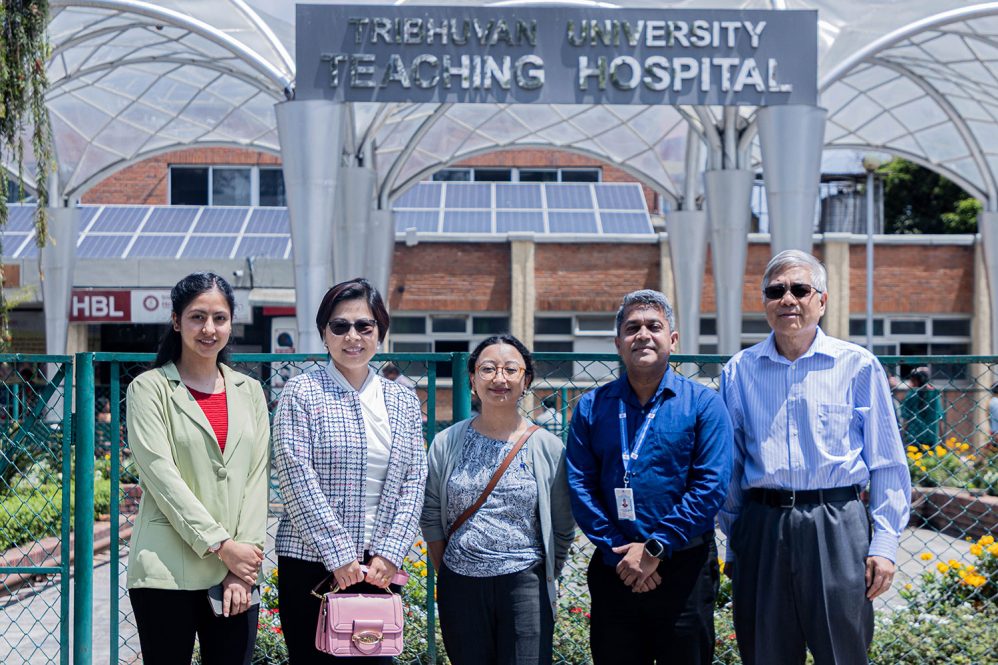
UConn Health’s Dr. Anu Maharjan is back from another international conference where she shared her expertise on lab quality, this time at an Association for Diagnostics and Laboratory Medicine (ADLM) Asia Pacific Working Group workshop in Nepal.
The Global Laboratory Quality Initiative workshop was part of the Nepalese Association of Clinical Chemistry Conference, May 3-4 in Kathmandu, Nepal’s capital.
Maharjan, an assistant professor of pathology and laboratory medicine and the director of UConn Health’s Core Laboratory, also visited laboratories at the Tribhuvan University Teaching Hospital, Nepal’s National Public Health Laboratory, and Samyak Diagnostic, a local pathology lab.

At the workshop, titled “Achieving Excellence in Laboratory Medicine Through Quality, Competency, and Data Science,” Maharjan presented practical applications of implementing laboratory quality and sought to advance patient-centered laboratory services throughout the country.
“There were close to 200 attendees for our workshop and many were from a laboratory medicine background, holding an MD or Ph.D.,” Maharjan says. “It was a humbling experience since some attendees even traveled on bus for more than 24 hours to attend our session.”
One of her presentations was on how to manage and implement point-of-care testing, which she says is a new concept for many laboratorians in Nepal.
“Many in the audience felt confident about implementing the requirements for a successful point-of-care department, but many still wanted a formal regulatory approval for laboratory medicine to oversee point-of-care testing in Nepal,” Maharjan says.
She also discussed risk management strategies.
“Showing monitoring of quality-control plans along with continual communication with internal and external stakeholders helped the audience see the benefits of risk management in laboratory medicine,” Maharjan says. “Many were keen on learning about risk management examples such as delta checking and moving averages to their day-to-day quality plan.”

Her workshop concluded with a case study presentation.
“I presented real-world case studies from laboratories across the United States to illustrate challenges related to reagents, calibrators, instrumentation, and staffing,” Maharjan says. “These examples resonated with our Nepalese audience, highlighting common issues faced in both settings.”
A member of the ADLM since 2017, Maharjan serves as past chair of the group’s New York Metro Local Section and is a member of the Asia Pacific ADLM Global Laboratory Quality Initiative. In that role, she presented at a workshop in Mongolia in 2023.
The ADLM is an international association of more than 70,000 clinical lab professionals, physicians, researchers and business leaders focused on achieving better health through laboratory medicine.



